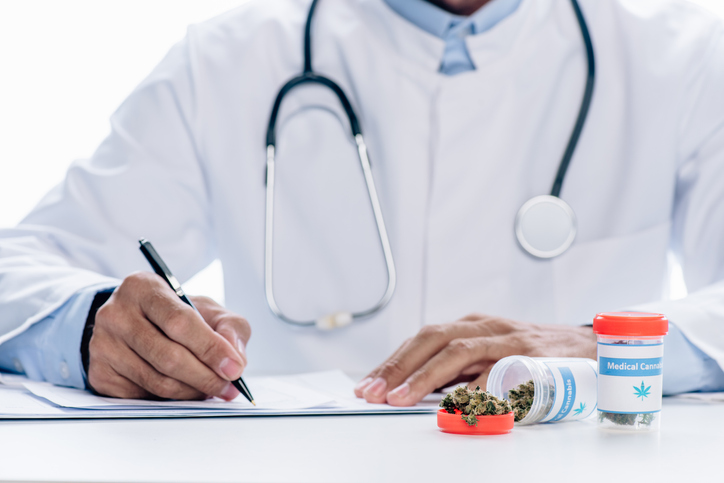Printing Personalised Medical Cannabis Products
12 oct 2020

Researchers use inkjet printing to create individual cannabinoid doses labelled with patient-specific information that is readable by a smartphone.
Cannabis-based medical products are attracting increasing attention for their potential to relieve symptoms for various diseases, especially for patients who have not been successfully treated with approved medicines. As a result, many countries have recently legalised medical cannabis for treating specific conditions, such as multiple sclerosis or rare forms of epilepsy, or have initiated trials to evaluate its use for medical purposes.
Medical cannabis extracts are highly complex, containing more than 100 active cannabinoids. The two most important compounds that scientists have identified so far are the psychoactive delta–9–tetrahydrocannabinol (THC) and cannabidiol (CBD). Both these substances can also be synthetically manufactured today.
But there are a variety of challenges surrounding the safe and effective delivery of medical cannabis products to patients.
Introducing the Data–Enriched Edible Pharmaceutical
As both THC and CBD have poor water solubility, many medical cannabis products are oil– or ethanol-based formulations, which include oral spray, solutions and gelatin capsules. But the cannabinoid composition and concentration of different products will potentially vary, which may affect treatment outcomes.
Another complication is that the dose of medical cannabinoids is highly individual – and closely supervised slow dose escalation is necessary to determine the minimum effective dose while avoiding undesired side effects. And the patient’s usage of medical cannabis products will require careful monitoring as it has the potential for abuse.
To help combat these challenges, researchers present the concept of data–enriched edible pharmaceuticals (DEEP) in a new study published in the International Journal of Pharmaceutics.1
Printing Doses In QR Codes
The new approach involves inkjet printing of cannabinoid droplets into the pattern of a QR code onto porous solid foams, which enables the incorporation of patient-specific information and opens the possibility of tracking and tracing every single dosage unit along the entire supply chain.
The researchers incorporated different doses of CBD and THC by using an inkjet printer to add between one and 10 layers of cannabinoid–containing ink onto the solid foams, prepared by solvent casting and subsequent freeze-drying. They showed that increasing layers showed increased doses of the two compounds – and the QR codes were still decodable with a standard smartphone after 8 weeks of storage in dry and cold conditions.
The team used ultrapure water generated from an ELGA PURELAB® Flex 4 laboratory water purification system, minimising the risk of adding contaminants that may affect their results.
Personalised, Traceable Medicines
In this study, researchers successfully prepared data–enriched edible pharmaceuticals (DEEP) with flexible doses of two poorly water-soluble cannabinoids by imprinting freeze-dried porous foams using a standard inkjet printer.
As well as capturing personalised information that will be relevant to patients, pharmacists and doctors, labelling the actual drug instead of the packaging provides a new possibility for developing more efficient supply chains by increasing the traceability of drug products at a single unit dosage level.
This approach offers the additional opportunity to improve patient safety, which is especially relevant for drugs with a potential for misuse like cannabinoids.
Why Choose ELGA LabWater?
ELGA’s expert engineers, chemists and scientists are at the forefront of technological innovation. We continue to introduce game-changing features to the laboratory water market.
Reference:
- Öblom, H. et al. Data–enriched edible pharmaceuticals (DEEP) of medical cannabis by inkjet printing. Int J Pharm. 2020;589:119866
Dr Alison Halliday
After completing an undergraduate degree in Biochemistry & Genetics at Sheffield University, Alison was awarded a PhD in Human Molecular Genetics at the University of Newcastle. She carried out five years as a Senior Postdoctoral Research Fellow at UCL, investigating the genes involved in childhood obesity syndrome. Moving into science communications, she spent ten years at Cancer Research UK engaging the public about the charity’s work. She now specialises in writing about research across the life sciences, medicine and health.
